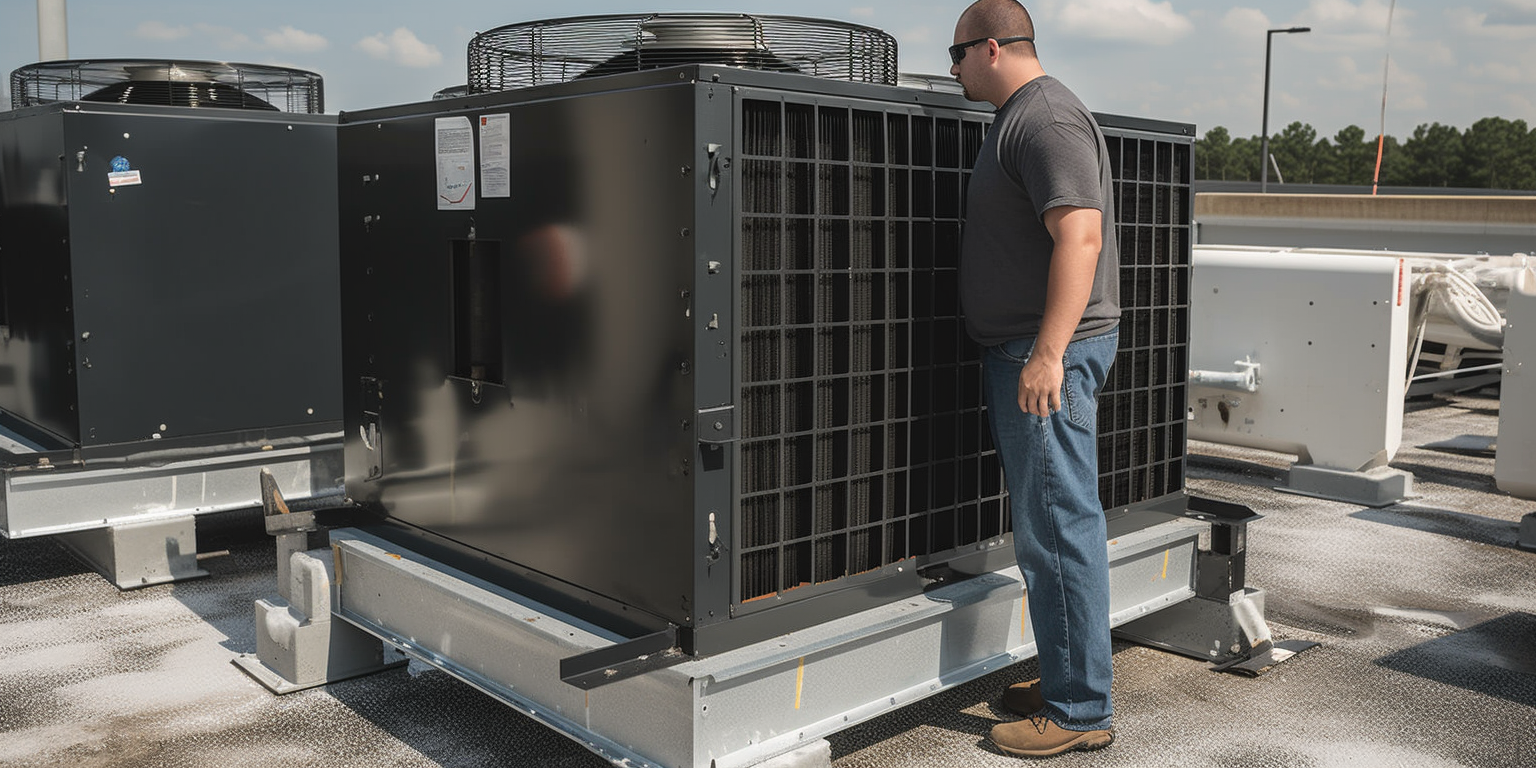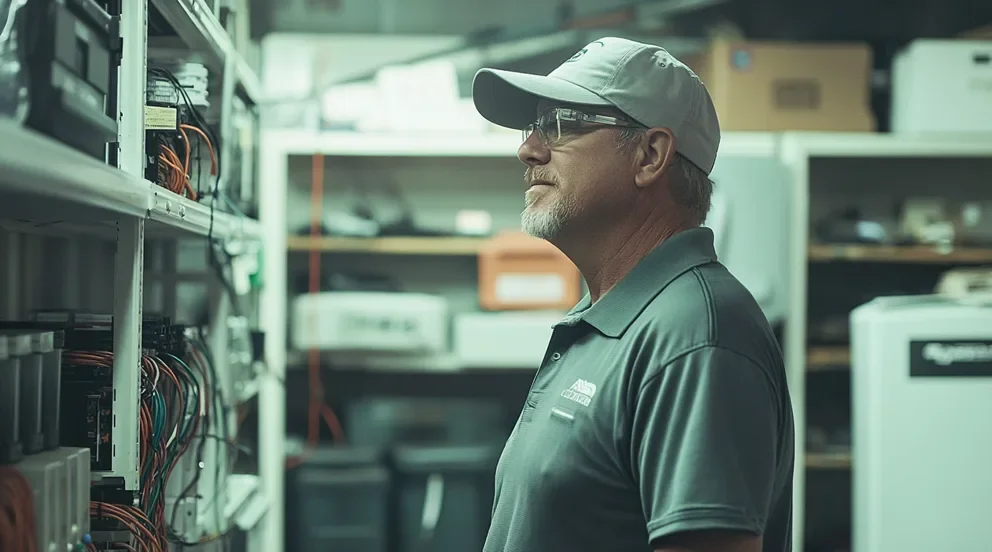A condenser plays a pivotal role. Think of it as the heart of the system, pumping life into the refrigeration cycle. So, what does it do? Simply put, it cools down and condenses the refrigerant vapor into liquid.
After the refrigerant absorbs heat from the environment, it turns into a high-pressure vapor. This vapor then travels to the condenser. Here is where the magic happens. The condenser cools down this vapor using surrounding air or water, transforming it back into a high-pressure liquid. This liquid then moves on to the evaporator, ready to start the cycle again.
The condenser is crucial for efficient operation and energy conservation. Without it, the system wouldn’t be able to release the absorbed heat, disrupting the entire refrigeration cycle. In turn, this could lead to increased power consumption and decreased performance.
In larger industrial applications, the condenser’s role extends beyond just cooling the refrigerant. It also plays an essential part in heat recovery, reusing the heat generated by the refrigeration system for other processes.
Remember, a well-maintained condenser keeps a refrigeration system running smoothly, contributing to sustainability, energy efficiency, and cost savings. Hence, understanding its role is key to optimizing the performance of refrigeration systems in commercial and industrial settings.
How does the condenser work to facilitate the refrigeration process?
In the refrigeration process, the condenser plays a critical role. It’s the device that cools down and condenses the refrigerant vapor into a liquid. This all starts when the refrigerant enters the condenser as a high-pressure vapor. As the refrigerant passes through the condenser’s coils, it releases heat, causing it to cool down and change state from a vapor to a liquid.
The cooling is typically facilitated by a fan that blows ambient air across the coils. As the refrigerant journeys through the condenser, it continues to lose heat and condenses more, becoming a high-pressure liquid at the end of the condenser coil. This liquid refrigerant then exits the condenser, ready for the next stage of the refrigeration process.
This transformation is vital to the entire refrigeration cycle. The condenser’s ability to cool and condense the refrigerant ensures that it’s ready to absorb heat in the next stages of the cycle, helping keep our food cold, our homes comfortable, and our industries running smoothly. So, it’s safe to say that without the condenser, modern refrigeration wouldn’t exist!
Are there different types of condensers suitable for different refrigeration needs?
Absolutely, there are varied types of condensers specially designed for different refrigeration needs. Let’s dive in and learn more about it.
The most common type you’ll encounter is the air-cooled condenser. As the name implies, these condensers use air to cool and condense the refrigerant. They are incredibly popular due to their simple design, cost-effectiveness, and ease of maintenance. You’ll find them in small to medium-sized refrigeration systems, including domestic and commercial fridges.
Next on the list is the water-cooled condenser. These are an excellent choice for environments where airflow is limited, or ambient temperatures are too high. Water-cooled condensers use water to condense the refrigerant, making them more efficient than their air-cooled counterparts in such conditions. They’re commonly used in larger, industrial refrigeration systems.
Last but not least, we have the evaporative condenser. This type combines elements of water and air-cooled condensers. They cool the refrigerant using a small amount of water, which evaporates and removes heat in the process. Evaporative condensers are highly efficient and ideal for large-scale, commercial refrigeration systems.
There are different types of condensers suitable for a diverse range of refrigeration needs. The choice depends largely on the specific requirements of the refrigeration system, the environmental conditions, and operational considerations. So, when it comes to refrigeration, it’s crucial to select the right condenser for optimal performance.
What are the maintenance requirements for condensers in commercial and industrial refrigeration units?
Maintaining condensers in commercial and industrial refrigeration units is critical for efficient operation. The condenser, a vital component in the refrigeration cycle, releases heat absorbed from the refrigerated space to the outside environment. If not properly maintained, it might compromise the efficiency and longevity of the system.
Firstly, regular cleaning is essential. Dust, debris and other foreign materials can clog the condenser coil, reducing its ability to dissipate heat. Simple cleaning can be done with a soft brush, while a professional should handle major cleaning, especially for larger units.
Secondly, regular inspection for leaks is necessary. Condensers operate under high pressure, and any leaks can significantly impact the overall efficiency of the refrigeration system. Professional technicians can use leak detection tools to find and repair any leaks promptly.
Finally, proper lubrication of the condenser fan motor is crucial. Insufficient lubrication can lead to fan motor failure, causing the condenser to overheat and eventually leading to a breakdown of the whole refrigeration system.
Remember, preventive maintenance is always better than reactive repairs. It’s advisable to have a professional technician carry out a thorough check of the refrigeration unit, including the condenser, at least once a year. This way, potential issues can be identified and fixed before they escalate into major problems. Regular maintenance not only ensures optimal performance but also extends the lifespan of the refrigeration unit.
How does a malfunctioning condenser impact the efficiency of a refrigeration system?
A malfunctioning condenser can drastically impact the efficiency of your refrigeration system. Here’s how it works – the condenser’s role is to release the heat absorbed from your home or business out into the surrounding environment. When it functions correctly, your refrigeration system cools spaces effectively and keeps energy costs at bay.
However, if your condenser starts failing, you’ll begin to notice a shift in your refrigeration system’s performance. First, your system will struggle to maintain consistent temperatures. This is because a faulty condenser can’t expel enough heat, meaning your refrigeration system must work harder to keep things cool. This extra strain can lead to a significant increase in energy consumption, pushing up your utility bills.
A malfunctioning condenser could also lead to a shorter lifespan for your refrigeration system. The increased workload due to the failing condenser might cause other parts of the system to wear out more quickly. Instead of enjoying a system life of 15-20 years, you might be looking at costly repairs or replacements far sooner.
Furthermore, a faulty condenser may cause your refrigeration system to make more noise. As the condenser struggles to perform, it may start generating unusual sounds. So if you notice your system becoming noisier, it might be time to check your condenser.
Taking good care of your condenser ensures your refrigeration system runs efficiently, saving you money and avoiding unnecessary distress. If you suspect that your condenser is malfunctioning, it’s wise to call in a professional to address the issue right away.
What factors should be considered when selecting a condenser for a commercial or industrial refrigeration system?
When selecting a condenser for a commercial or industrial refrigeration system, several key factors come into play. Firstly, the size of the refrigeration system is crucial as it directly influences the size and capacity of the condenser needed. A system that’s too small will be overworked, while one that’s too large will be inefficient.
The operating environment is another vital aspect to consider. For instance, if the refrigeration system is in a hot or dusty area, you’ll need a robust condenser that can handle such conditions. Additionally, the noise level of the condenser should be checked especially if the system is located in an area where noise can be a disturbance.
Energy efficiency is a significant factor as well. More efficient condensers may have a higher upfront cost, but they often save money in the long run due to lower operating costs. Moreover, maintenance requirements also need to be considered. Frequent need for servicing can lead to higher operating expenses and downtime.
Lastly, it’s important to consider the type of refrigerant used in the system. Some condensers are better suited to certain types of refrigerants. It’s crucial to ensure compatibility between your system’s refrigerant and the condenser.
Are there any specific industry standards or regulations that apply to condensers in commercial and industrial refrigeration systems?
Absolutely, there are specific industry standards and regulations that apply to condensers in commercial and industrial refrigeration systems. Both national and international organizations, such as the American Society of Heating, Refrigerating and Air-Conditioning Engineers (ASHRAE) and the International Institute of Refrigeration (IIR), set these standards to ensure safety, efficiency, and environmental sustainability.
ASHRAE provides widely recognized guidelines for refrigeration processes, including condenser operation. These standards cover a wide range of areas, including proper maintenance, energy efficiency, and emission reductions. Similarly, IIR provides international standards, focusing on the latest technological advancements and their implications for condenser use.
In addition to these, the Environmental Protection Agency (EPA) in the U.S. regulates the use of refrigerants, including those in condensers, to minimize environmental impact. Their regulations under Section 608 of the Clean Air Act directly address leak repair, recordkeeping, and disposal of refrigeration condensers.
It’s crucial for businesses in the refrigeration industry to stay updated on these regulations and standards. Not only do they help in maintaining safety and efficiency, but adherence also prevents legal issues and potential fines. To ensure compliance, regular audits and routine maintenance according to the specified guidelines is recommended.
How can the use of software help in maintaining Industrial and Commercial Condensers?
Software is revolutionizing the way we maintain industrial and commercial condensers. By integrating smart software, we can monitor the condenser’s performance in real-time, making maintenance more proactive than reactive.
For instance, software can alert us when the condenser is not operating at its optimal efficiency. Perhaps it’s circulating too much refrigerant, or maybe its temperature is fluctuating. Such minor issues, if left unchecked, can lead to major system failures. But with the right software, we can detect these problems early, ensuring that the condenser runs smoothly.
Furthermore, such software can also schedule regular check-ups and maintenance tasks, thereby ensuring that small issues don’t snowball into larger problems down the line. For example, regular cleaning of the condenser coils is critical for maintaining their efficiency. Software can remind us when it’s time to carry out this crucial task.
Finally, software can provide us with valuable data about the condenser’s performance. By analyzing this data, we can identify trends and patterns which might not be apparent at first glance. For example, we might notice that the condenser’s efficiency drops during certain times of the year. With this information, we can make informed decisions about when to schedule maintenance tasks.
To sum up, software is a powerful tool for maintaining industrial and commercial condensers. It allows us to monitor performance in real-time, schedule regular maintenance tasks, and make data-driven decisions. By harnessing the power of software, we can ensure that our condensers remain in top-notch condition, saving us time, money, and stress in the long run.
Key Takeaways:
- The selection of a condenser for a commercial or industrial refrigeration system should consider the size of the system, operating environment, noise level, energy efficiency, maintenance requirements and refrigerant type compatibility.
- Industry standards and regulations from organizations like ASHRAE, IIR, and the EPA apply to condensers in commercial and industrial refrigeration systems, ensuring safety, efficiency, and environmental sustainability.
- Software plays a key role in maintaining industrial and commercial condensers, by providing real-time performance monitoring, scheduling regular maintenance tasks, and generating valuable data to aid decision-making.
- Regular audits and routine maintenance as per specified guidelines is recommended to ensure compliance with regulations and standards.
- Proactively addressing minor condenser issues detected through software can prevent major system failures, leading to cost and time savings.



